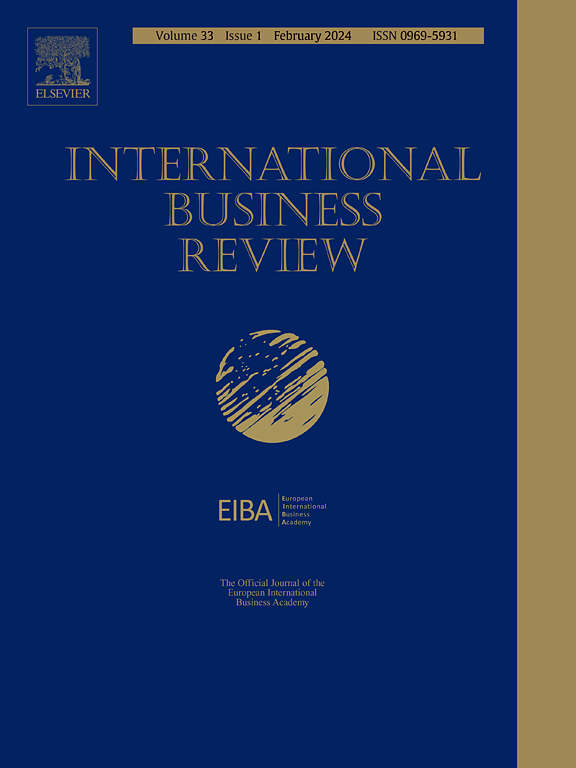Institutional quality and investment disputes in emerging and frontier economies
IF 6.1
1区 管理学
Q1 BUSINESS
引用次数: 0
Abstract
This study examines the relationship between institutional quality and investor-state disputes in emerging and frontier economies. Analyzing data from 40 countries for 2008–2020 using a fixed-effects negative binomial regression model, I investigate how different dimensions of institutional quality affect the occurrence of investment disputes. The results reveal a complex pattern: Stronger regulatory quality, rule of law, legal efficiency, and expropriation risk protection are associated with fewer disputes, whereas stronger property rights protection and more international investment agreements are associated with increased dispute frequency. Robustness checks suggest a more complex relationship with property rights than was initially found. These findings collectively indicate that institutional development transforms rather than simply reducing investment risk, as stronger institutions simultaneously attract investment while providing clearer grounds for legal action and raising investor expectations. These findings contribute to institutional theory and have implications for policymakers seeking to balance institutional development with dispute risk management in emerging and frontier economies.
新兴和前沿经济体的制度质量和投资纠纷
本研究考察了新兴经济体和前沿经济体的制度质量与投资者-国家争端之间的关系。利用固定效应负二项回归模型分析了40个国家2008-2020年的数据,研究了制度质量的不同维度如何影响投资纠纷的发生。结果揭示了一个复杂的模式:更强的监管质量、法治、法律效率和征收风险保护与纠纷减少有关,而更强的产权保护和更多的国际投资协定与纠纷频率增加有关。鲁棒性检验表明,与最初发现的情况相比,中国与产权的关系更为复杂。这些研究结果共同表明,制度发展改变了而不仅仅是降低了投资风险,因为更强大的制度在吸引投资的同时,为法律行动提供了更明确的依据,并提高了投资者的期望。这些发现有助于制度理论,并对寻求平衡新兴和前沿经济体的制度发展与争议风险管理的政策制定者具有启示意义。
本文章由计算机程序翻译,如有差异,请以英文原文为准。
求助全文
约1分钟内获得全文
求助全文
来源期刊

International Business Review
BUSINESS-
CiteScore
14.10
自引率
6.90%
发文量
95
审稿时长
62 days
期刊介绍:
The International Business Review (IBR) stands as a premier international journal within the realm of international business and proudly serves as the official publication of the European International Business Academy (EIBA). This esteemed journal publishes original and insightful papers addressing the theory and practice of international business, encompassing a broad spectrum of topics such as firms' internationalization strategies, cross-border management of operations, and comparative studies of business environments across different countries. In essence, IBR is dedicated to disseminating research that informs the international operations of firms, whether they are SMEs or large MNEs, and guides the actions of policymakers in both home and host countries. The journal warmly welcomes conceptual papers, empirical studies, and review articles, fostering contributions from various disciplines including strategy, finance, management, marketing, economics, HRM, and organizational studies. IBR embraces methodological diversity, with equal openness to papers utilizing quantitative, qualitative, or mixed-method approaches.
 求助内容:
求助内容: 应助结果提醒方式:
应助结果提醒方式:


